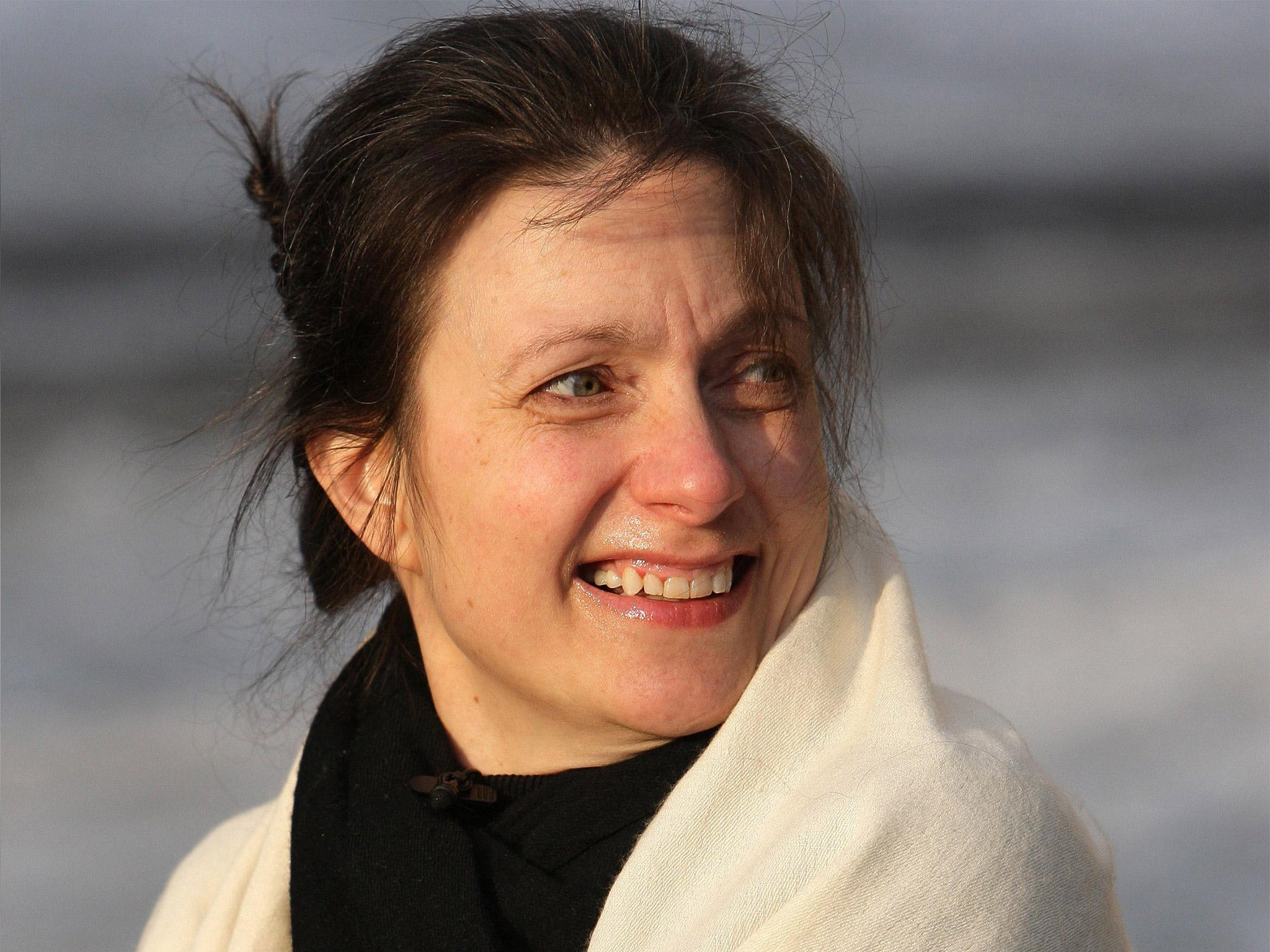Debbie Purdy: Campaigner who fought tirelessly for clarification of assisted suicide laws
She started lobbying after being diagnosed with multiple sclerosis

Debbie Purdy, who has died aged 51, was the campaigner who had fought for nearly 20 years for the right to die – and for others legally to be able to assist. Since being diagnosed with primary progressive multiple sclerosis in 1995 she had pursued twin aims: firstly, to ensure the right to die; secondly, if that first objective was not yet possible, to clarify what was and was not legal for others in helping a patient to die. As she points out in her memoir, “Dying is a fundamental part of being human, and it’s time that we revisited a law that informs the way we spend the end of our lives.”
Her campaign had started out of concern for her husband, Omar Puente, whom she believed might eventually have to help her end her life. The couple had met at a bar in Singapore in 1995, just months before her diagnosis. Purdy, a freelance journalist, had been commissioned to write a review of a performance by the Cuban Boys, the salsa band in which Puente played.
Purdy and Puente returned together to the UK in 1997 because of her illness. They married the following year. By 2001 she was a full-time wheelchair user. As her condition worsened, she needed to be sure that he would not be arrested if he helped her to take her own life.
She had been a campaigner since her teenage years. “Maggie Thatcher was elected on 3 May 1979, the day before my 16th birthday, and I remember being devastated,” she recalled. “I spent the next few years marching, demonstrating, standing on picket lines, handing out leaflets and chanting, ‘Maggie, Maggie, Maggie! Out! Out! Out!’” She had read about the case of Diane Pretty, a right-to-die advocate with motor neurone disease, who fought for her husband to be allowed to help her die.
Purdy began a campaign to seek clarification of the current law on assisted suicide. Interviewed for this newspaper in 2008, she spoke of her concern for her husband. “He is black, foreign and has very little money – that’s not a great thing to be today... After I have gone I don’t want him to fall foul of the law for being the wrong colour, from the wrong country and from the wrong class.”
Aided by the lawyer Saimo Chahal, she built a case which first went to court in June 2008. As Purdy later wrote, “We were asking the Director of Public Prosecutions, quite reasonably, to explain when he would prosecute and when he wouldn’t. We were challenging the murky law not only for me, but for hundreds of others who wanted an answer to the question.” Sarah Wootton, chief executive of Dignity in Dying, said, “Debbie railed against the hypocrisy of the current law, which turns a blind eye to people travelling abroad to die, whilst seeking to protect them by threatening the imprisonment of their loved ones after their death.”
In September 2009 the Law Lords ruled that the lack of clarity in the Suicide Act 1961 violated article 8 of the European Convention on Human Rights, which ensures the right to respect for one’s private and family life. The landmark victory did not result in a change in the law, but did ensure that the law on assisted suicide would now be clarified. Keir Starmer, the then Director of Public Prosecutions, was obliged to publish guidelines on what would and would not be legal in helping a person to die.
Following the ruling, it remains illegal to assist a suicide, but thanks to Purdy’s determination and persistance it is now clear what family members may do to help those who wish to take their own life. She tells her story and the progress of the legal case in the memoir It’s Not Because I Want to Die (2010).
Progress on the right to die is being made slowly, with advances but also setbacks. An “Assisted Dying for the Terminally Ill Bill” was tabled by Lord Joffe in 2005, but was then blocked in the Lords the following year. A new bill, tabled by Lord Falconer, received a second reading in July this year and moved to committee stage last month. If enacted, the bill will give terminally ill adults the choice of assisted dying, if their suffering becomes too great. It will be a testament to campaigners such as Debbie Purdy, Diane Pretty and Tony Nicklinson (Independent obituary 23 August 2012), who fought bravely, so that others will be able to choose to end their lives.
“Debbie wanted choice and control over her death should she consider her suffering unbearable,” said Wootton. “Ultimately she was seeking peace of mind that her wishes would be respected, but also crucially that her decisions would not result in the potential imprisonment of her husband.”
Purdy spent her last year at the Marie Curie Hospice in Bradford. Without the funds to go abroad to an assisted-dying clinic in Switzerland, she saw starvation as the only legal option that remained for bringing her life to an end. Speaking from her bed at the hospice she said, “It’s not a matter of wanting to end my life. It’s a matter of not wanting my life to be this. And I’ve lived with MS for nearly 20 years.”
Debbie Purdy: right-to-die campaigner: born 4 May 1963; married 1998 Omar Puente; died Bradford 23 December 2014.
Join our commenting forum
Join thought-provoking conversations, follow other Independent readers and see their replies
Comments
Bookmark popover
Removed from bookmarks